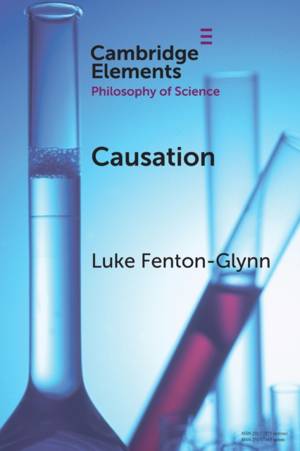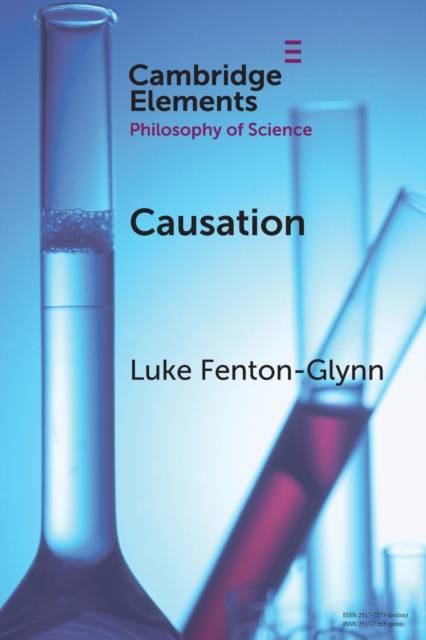
Bedankt voor het vertrouwen het afgelopen jaar! Om jou te bedanken bieden we GRATIS verzending (in België) aan op alles gedurende de hele maand januari.
- Afhalen na 1 uur in een winkel met voorraad
- In januari gratis thuislevering in België
- Ruim aanbod met 7 miljoen producten
Bedankt voor het vertrouwen het afgelopen jaar! Om jou te bedanken bieden we GRATIS verzending (in België) aan op alles gedurende de hele maand januari.
- Afhalen na 1 uur in een winkel met voorraad
- In januari gratis thuislevering in België
- Ruim aanbod met 7 miljoen producten
Zoeken
€ 33,45
+ 66 punten
Omschrijving
This Element provides an accessible introduction to the contemporary philosophy of causation. It introduces the reader to central concepts and distinctions (type vs token causation, probabilistic vs deterministic causation, difference-making, interventions, overdetermination, pre-emption) and to key tools (structural equations, graphs, probabilistic causal models) drawn upon in the contemporary debate. The aim is to fuel the reader's interest in causation, and to equip them with the resources to contribute to the debate themselves. The discussion is historically informed and outward-looking. 'Historically informed' in that concise accounts of key historical contributions to the understanding of causation set the stage for an examination of the latest research. 'Outward looking' in that illustrations are provided of how the philosophy of causation relates to issues in the sciences, law, and elsewhere. The aim is to show why the study of causation is of critical importance, besides being fascinating in its own right.
Specificaties
Betrokkenen
- Auteur(s):
- Uitgeverij:
Inhoud
- Aantal bladzijden:
- 100
- Taal:
- Engels
- Reeks:
Eigenschappen
- Productcode (EAN):
- 9781108706636
- Verschijningsdatum:
- 15/07/2021
- Uitvoering:
- Paperback
- Formaat:
- Trade paperback (VS)
- Afmetingen:
- 152 mm x 229 mm
- Gewicht:
- 145 g

Alleen bij Standaard Boekhandel
+ 66 punten op je klantenkaart van Standaard Boekhandel
Beoordelingen
We publiceren alleen reviews die voldoen aan de voorwaarden voor reviews. Bekijk onze voorwaarden voor reviews.









